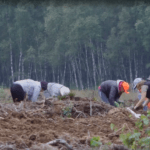limate change is projected to affect agriculture in Europe and around the globe, altering growing conditions, production patterns and yields, with impacts on prices, trade and regional markets, according to the EEA briefing ‘Global climate change impacts and the supply of agricultural commodities to Europe’.
The analysis, based on a study commissioned by the EEA, addresses key implications for Europe’s agricultural trade of global climate change impacts. The study combines information on global climate change impacts on agricultural production with information on the EU’s import profile and evidence on the vulnerability to climate change of the products’ countries of origin.
Risks associated to climate change are being increasingly felt across all elements of the agricultural sector from production, infrastructure and trade to finance.
While Europe is mostly self-sufficient in terms of cereals and vegetables, its reliance on imported tropical products like cocoa beans or palm oil, and commodities like soy beans used for animal feed and processing make it vulnerable to climate change impacts abroad.
Opening up trade with more countries with a focus on environmental protection in their agriculture policies and diversifying imports could reduce the risk of supply disruptions. Policies to reduce demand for products associated with high environmental pressures would also be beneficial in this respect.
Furthermore, adaptation capacity in producing countries would need to be bolstered with EU support, as announced in the European Commission’s blueprint of the upcoming EU adaptation strategy.







Leave a Reply